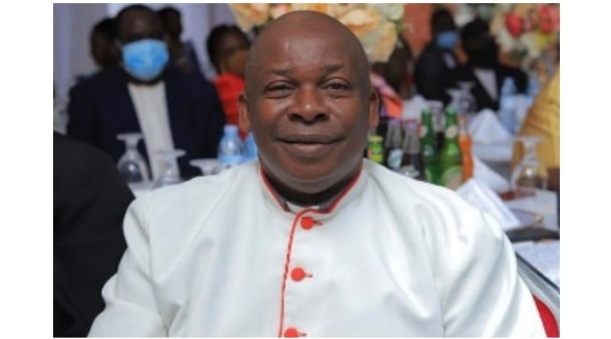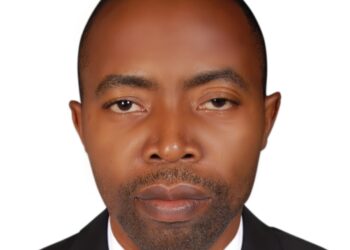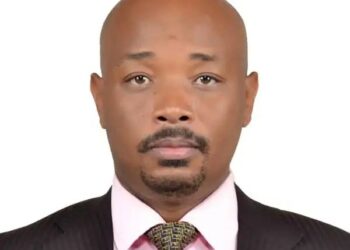Death comes to us in many forms, and the sudden nullification of the election of Rev. Canon Godfrey Kasana as the 4th Bishop of Luwero, in just less than seventeen days to his consecration is one of them. It has all the markings of a sticky political situation which has torn apart Christ’s tunic to shreds.
While this has largely been attributed to the slug, hustle and graft of infidelity reports which have been associated with the bishop elect, there is one major factor that has largely been overlooked.
Our Apostolic fathers (Bishops) during their difficult meeting on June 28, 2023 at the Kabalega Resort Hotel in Hoima have cited anomalies in the entire nomination process as another factor that led to the nullification the Kasana election. Yet Church Canons on the nominations and elections of Bishops (Canon III & IV ) clearly stipulate- Anyone so elected against the backdrop of anomalies in the nomination process, will have his or her election nullified.
What are some of the anomalies in the Luwero nomination process that could have led to this sad event and driven the Church straight into the blazing sun with all of us gasping for our breath in scotching temperatures? And what are the implications for Namirembe Diocese who are now gearing up for the nominations of their 5th indigenous Bishop?
The Luwero Diocese synod did not constitute their 15 member nominations committee very well. The three members on the committee who represent the youth were over 40 years of age, yet the Church canons are so clear that a youth should be between 25-35 years of age. While this could be quickly explained by the chronic exodus of young people from the mainstream Church but certainly bringing on the committee a 45 year old is a sharp departure from what framers of the canons intended for our church.
Not to belittle the bravery and hard work of the members of the nomination committee in coming up with the nominees out of a pool of many candidates, it is still unclear why when one of the candidates was disqualified on suspicion of forgery, fresh nominations were not announced; as is clearly provided for by the Church Canons. Engaging in new nominations afresh, helps to identify gaps in the process that led to the disqualification in the first place and come up with new ways to address these to avoid a repeat of the same problem. Instead, the committee chose to defy provisions on fresh nominations and went ahead to present the remaining candidates for consideration by the House of Bishops.
It is also believed that during the nomination exercise, there was not much chance given to nomination committee members to conduct due diligence on each of the Bishop candidates presented for nomination. Instead files on each candidate was brought on the nomination day and members were expected to make brief comments on each one of them before a decision was made. Ideally, a file on all candidates must be given to each and every member on the committee in good time to allow due diligence on each one of the candidates and to share with the rest on the nomination day. And in case of a decision is to be made on a given candidate, it must be by consensus of all members of the nomination committee present, which was not the case in Luwero.
There must also be a complete re-write of the entire legislative script around the position of the Chairman of the Nomination Committee. While the election of the members of the nomination committee is clearly done by the Diocesan Synod members, the Chairman of the Nomination committee is appointed by the outgoing Bishop. The Chairman therefore brings with him a lot of baggage from his appointing authority and suffers a conflict of interest.
The entire discernment process (nomination, election and preparation of a new Bishop) as was handed down to us by our forefathers (Anglicanism in its form was handed down to us by King Henry VII in 1776), is ultimately a spiritual enterprise. It must be grounded in prayer and fasting, always listening for the Holy Spirit (James 1:2-5). But where is the place of prayer (James 1:2-5) in the entire nomination exercise in Luwero? Our counterparts in western Anglican churches start their journey for search of new Bishop with a Diocesan day of prayer and fasting-mentioning all members of the nomination committee by name and asking God for guidance.
Namirembe Diocese which should be starting her nominations anytime now (provisions of the Church canons, stipulate that nominations must start 6 months prior to the election of New Bishop) has not announced any diocesan prayer day for the nomination and election of the 5th Indigenous Bishop. Additionally, there also seems to be no evidence for prior Discernment prayer retreat for members of nomination committee. Such a retreat, which normally precedes the nomination process is designed to give members ample time to acquaint with each other better and to share tools for discernment and illuminate each other’s strength, weakness, opportunities and threats on the path ahead.
And why should the Chairperson of the Nomination committee be a lay person? Is the lay person, his law degree notwithstanding, equipped canonically to steer this holy process to a complete prayerful and ecclesiastical awareness, it deserves? And why do the lay members out number their cleric counterparts? Can we not think of having equal numbers of clergy and laity on the committee? Given chance, haven’t the clergy who are well trained in pastoral theology; proven to their lay counterparts, that they can out fight, out think and out defeat the laity in the battle for the soul of the Church?
I rest my case.
AUTHOR
Rev. Canon Erich Kasirye 0782-392534
CHAPLAIN, KAMPALA CAPITAL CITY AUTHORITY
Do you have a story in your community or an opinion to share with us: Email us at editorial@watchdoguganda.com













